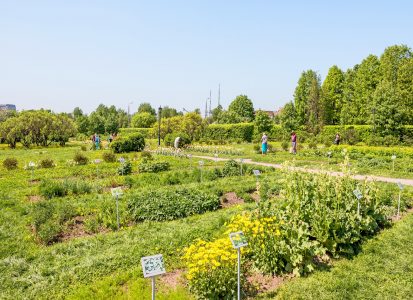What is Plant Medicine?
From the earliest times, medicinal plants have been crucial to sustaining the health and well being of people. Traditional cultures from around the world each have unique plants specific to their region that encourage homeostasis and wellness. A 60,000-year-old burial site excavated in Iraq was found to contain eight different medicinal plants, including Ephedra (Ephedra sinica). There has been a resurgence of plant medicine as we learn the scientific components to how plants are still a relevant option for treatment or balance within the body. Holistic health is the whole picture of health which includes physical, mental, emotional, social and even spiritual factors. Plant medicine can affect many different professions due to the different ways plants can affect the body. Ask your patients about their phytotherapy routine. The various disciplines that should be aware of plant therapy are: Doctors, Nurses, Medical Lab Technicians / Assistants, Pharmacists, Pharmacist Technicians, Dental Assistants / Hygienists, & Massage Therapists

Image: Apothecary Garden
Adverse Effects of Herbal Medicine & Pharmaceutical Drugs
Garlic: Prolonged use of concentrated garlic extracts may reduce the efficacy of drugs whose disposition depends on the human efflux transporter ABCB1. There has been some evidence that garlic may have an effect on the metabolism of the HIV antiviral drug saquinavir.
Ginseng (Asian) [Panax ginseng]: induces activity of the drug-metabolizing enzyme CYP3A in the liver and possibly the gastrointestinal tract. Patients taking Asian ginseng in combination with CYP3A substrates with narrow therapeutic ranges should be closely monitored for adequate therapeutic response to the substrate medication.
Goldenseal [Hydrastis canadensis]: is a potent inhibitor of both CYP3A4 and CYP2D6 enzyme activity, and the potential for herb-drug interactions is high.
Kava: There is some evidence that mixed with a CNS depressants can increase risk of drowsiness and motor reflex depression.
St. John’s Wort: Clinically significant interactions have been documented with St. John’s wort and the immunosuppressant drug cyclosporine, the antiretroviral agent indinavir, oral contraceptives, coumadin, digoxin, and benzodiazepines, among others.
(National Center for Complementary and Integrative Health, 2019)
Laboratory Tests
BLOOD TESTS
Calcium & sodium channel blockade: Kava kava
Decrease warfarin effect: Green tea
Digoxin Immunoreactivity: Ginseng, Chan Su, Dan Shen, Oleandrin,
Elevated Liver Function Tests: [alanine aminotransferase (ALT), aspartate aminotransferase (AST), and bilirubin concentrations] from use of kava-kava.
Falsely elevated digoxin levels: Lu Shen Wan
Fibrinolysis: Dan Shen
Hypoglycemia: Ginseng
Hypokalemic: Licorice root
Increase warfarin effect: Borage oil, Cat’s Claw, Dan Shen, Dong Quai, Feverfew, Garlic, Ginger, Ginkgo biloba, Licorice root, Pentagyn
Lower therapeutic serum drug level: St. John’s Wort
Neurotransmitter inhibition: Valerian root
Platelet inhibition: Dan Shen, Garlic, Ginkgo biloba
ECG TESTS
Arrhythmia: Chan Su , Ephedra, Lobelia, Oleandrin, Passion flower,
Hypertension: Bitter Orange, Chan Su, Ephedra, Ginkgo biloba, Licorice root, Yohimbe
Hypotension: Valerian root,
Tachycardia: Valerian root, Yohimbe
(Clinlab Navigator, 2020)
Clinlab Navigator. (2020). Retrieved from Herbs & Lab Tests: http://www.clinlabnavigator.com/effect-of-herbal-medicines-on-lab-tests.html Dr. Hauschka Skin Care. (2020). Retrieved from https://www.dr.hauschka.com/en_US/our-ingredients/plant-heroes/st-johns-wort/ National Center for Complementary and Integrative Health. (2019, Feb 13). [Image] Retrieved from Herb-Drug Interactions: https://nccih.nih.gov/health/providers/digest/herb-drug Wikipedia. (2018). [Image] Retrieved from Apothecary Garden: https://upload.wikimedia.org/wikipedia/commons/4/44/Apothecary_garden_4.jpg

